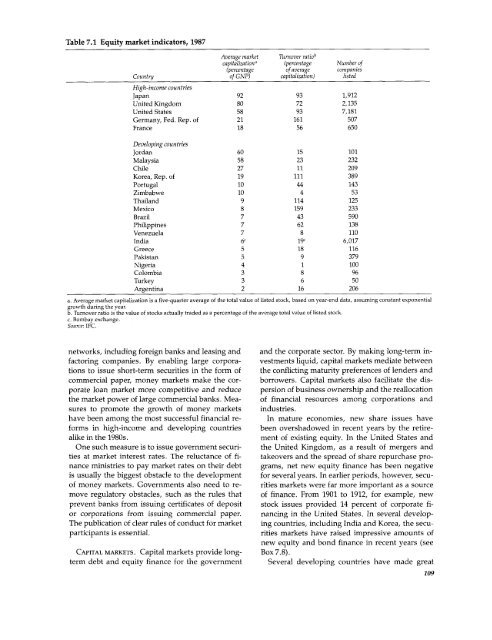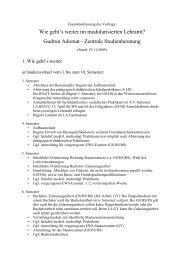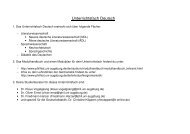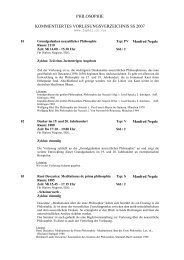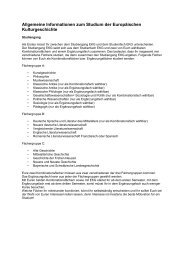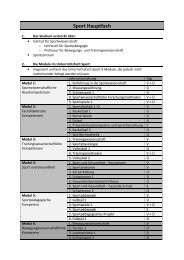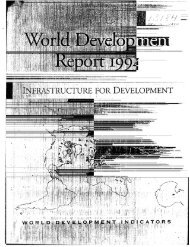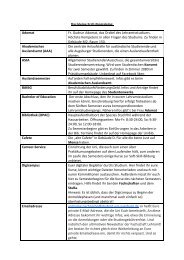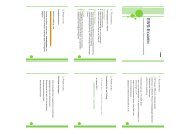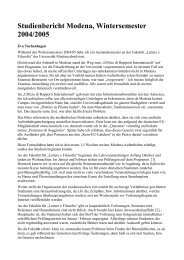Financial systems and development
Financial systems and development
Financial systems and development
Create successful ePaper yourself
Turn your PDF publications into a flip-book with our unique Google optimized e-Paper software.
Table 7.1 Equity market indicators, 1987<br />
Average market Turnover ratiob<br />
capitalization, (percentage Number of<br />
(percentage of average companies<br />
Country of GNP) capitalization) listed<br />
High-income countries<br />
Japan 92 93 1,912<br />
United Kingdom 80 72 2,135<br />
United States 58 93 7,181<br />
Germany, Fed. Rep. of 21 161 507<br />
France 18 56 650<br />
Developitig countries<br />
Jordan 60 15 101<br />
Malaysia 58 23 232<br />
Chile 27 11 209<br />
Korea, Rep. of 19 111 389<br />
Portugal 10 44 143<br />
Zimbabwe 10 4 53<br />
Thail<strong>and</strong> 9 114 125<br />
Mexico 8 159 233<br />
Brazil 7 43 590<br />
Philippines 7 62 138<br />
Venezuela 7 8 110<br />
India 6' 19' 6,017<br />
Greece 5 18 116<br />
Pakistan 5 9 379<br />
Nigeria 4 1 100<br />
Colombia 3 8 96<br />
Turkey 3 6 50<br />
Argentina 2 16 206<br />
a. Average market capitalization is a five-quarter average of the total value of listed stock, based on year-end data, assuming constant exponential<br />
growth during the year.<br />
b. Turnover ratio is the value of stocks actually traded as a percentage of the average total value of listed stock.<br />
c. Bombay exchange.<br />
Source: IFC.<br />
networks, including foreign banks <strong>and</strong> leasing <strong>and</strong> <strong>and</strong> the corporate sector. By making long-term infactoring<br />
companies. By enabling large corpora- vestments liquid, capital markets mediate between<br />
tions to issue short-term securities in the form of the conflicting maturity preferences of lenders <strong>and</strong><br />
commercial paper, money markets make the cor- borrowers. Capital markets also facilitate the disporate<br />
loan market more competitive <strong>and</strong> reduce persion of business ownership <strong>and</strong> the reallocation<br />
the market power of large commercial banks. Mea- of financial resources among corporations <strong>and</strong><br />
sures to promote the growth of money markets industries.<br />
have been among the most successful financial re- In mature economies, new share issues have<br />
forms in high-income <strong>and</strong> developing countries been overshadowed in recent years by the retirealike<br />
in the 1980s.<br />
ment of existing equity. In the United States <strong>and</strong><br />
One such measure is to issue government securi- the United Kingdom, as a result of mergers <strong>and</strong><br />
ties at market interest rates. The reluctance of fi- takeovers <strong>and</strong> the spread of share repurchase pronance<br />
ministries to pay market rates on their debt grams, net new equity finance has been negative<br />
is usually the biggest obstacle to the <strong>development</strong> for several years. In earlier periods, however, secuof<br />
money markets. Governments also need to re- rities markets were far more important as a source<br />
move regulatory obstacles, such as the rules that of finance. From 1901 to 1912, for example, new<br />
prevent banks from issuing certificates of deposit stock issues provided 14 percent of corporate fior<br />
corporations from issuing commercial paper. nancing in the United States. In several develop-<br />
The publication of clear rules of conduct for market ing countries, including India <strong>and</strong> Korea, the secuparticipants<br />
is essential.<br />
rities markets have raised impressive amounts of<br />
new equity <strong>and</strong> bond finance in recent years (see<br />
CAPITAL MARKETS. Capital markets provide long- Box 7.8).<br />
term debt <strong>and</strong> equity finance for the government Several developing countries have made great<br />
109


